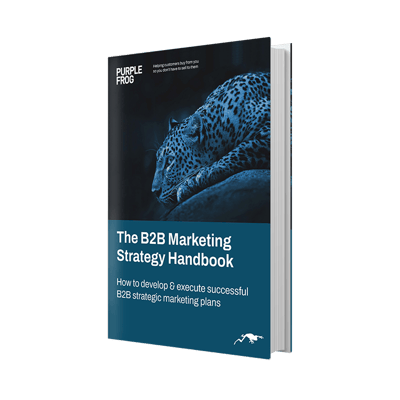Are brands important to SMEs
“In the knowledge economy, where agility outperforms size, where the customer is king, and creative, passionate people your only armament - new forms of leadership and team play are keys to success. It is about purpose and meaning, about something to believe in - about a new aesthetic: Inspiring people to dream and act. And it is about BEING the values, BEING the strategy”
Harald Knudsen – Said Business School
You have probably read the quote above, written by one of the most respected business academics in Europe, and have arrived a one of two distinct points of view - the ‘What a load of old tosh’ view or the ‘Wow, that sounds really interesting’ view. There is a third camp that a few of you perhaps subscribe to, which is the ‘That sounds like it should be really interesting if only I could understand what he meant’ camp. And in a sense this is the most important one.
Small businesses with limited budgets and marketing capability have historically been the last to consider that brand building activity could be both viable and beneficial for them. Some owner managers/partners believe, quite understandably, that THEY are the brand, that THEY inspire the belief of staff and customers. Others fear that spending on brand development will either cost a fortune or will be a waste of money or both. This view has (and this is ironic) been largely and erroneously created by the brand industry itself. Others think that brand is about image – logo design, advertising, sexy websites – things that they consider as irrelevant to them and their markets/customers or that require a marketing department to implement.
In reality, all of the concerns described above are born from a misunderstanding about what brand is, how is works and how it can measurably benefit small businesses. Part of the problem is the word itself – Brand. Brand is now so much a part of public and business language and thinking that it has gained a life of its own and is used and interpreted in an infinite number of ways. It is wrongly synonymous with big business, big spend, high street retail, fashion, design - things that most small business leaders do not consider relevant.
Perhaps a better way of thinking about brand is to consider it as the way that people, all people, think about your business, its products, services and offers, the way your people behave, the way that you convey the difference between you and your competitors in order to gain advantage over them and the way that you can use these to grow now and, more importantly, in the future. In other words how you grow your businesses REPUTATION in order to grow its sales, productivity, profitability and most importantly, its future financial value.
When SME reputation/brand development is considered in these ways and is carefully (but not expensively) defined and implemented, small businesses begin to benefit in many ways from the effort. Workforce belief, thought, action and team working improves. Customers, suppliers, partners and shareholders gain better understanding and loyalty and limited sales and marketing budgets work harder because communication is routed in something substantial – pre determined recognition. Most importantly the SME is able to genuinely and believably create a point of difference and advantage over its competitors. Properly constructed brands are also sustainable for a long time regardless of offer and market changes. In other words, and this is the shocker, work in this area is an investment not a cost. Finally, when brand development is measured, it has a financial value. It directly adds to the worth of the business.
So, do you need to understand or believe the quote above? NO. Is brand important and valuable to SME’s? YES, if embarked on carefully, realistically and responsibly.
To find out more about how you can develop influential, long lasting and growth generating brand change that will make a measurable difference to your business, workforce and customer groups, please contact Purple Frog or email more@purplefrog.co.uk
More from Creative Marketing
Should brand be important to small businesses?
Brand is now so much a part of public and business language and thinking that it has gained a life of its own and is used and...
Big Data and your marketing strategy





